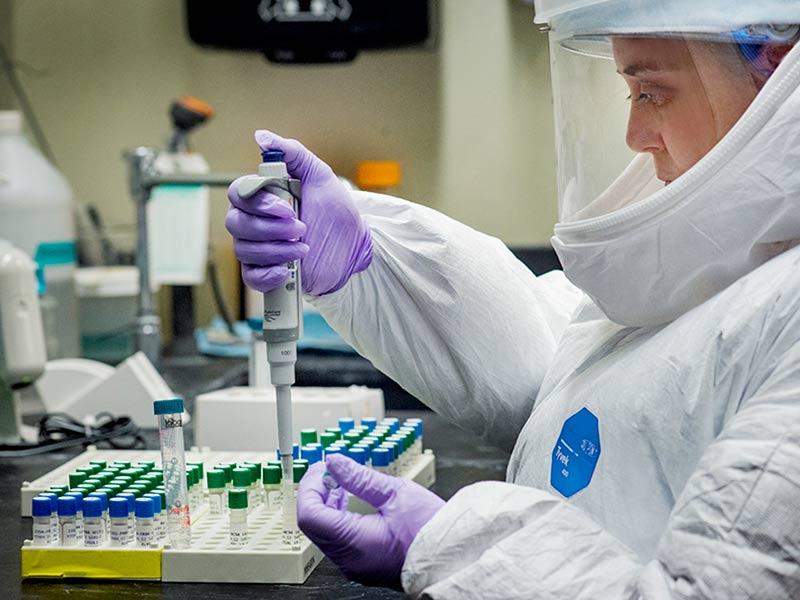Study determines how to best enhance protection of new COVID-19 vaccine
A new study co-authored by researchers at Tulane National Primate Research Center found that a vaccine currently being developed induces a robust and long-lasting immune response against SARS-CoV-2, the virus that causes COVID-19, in nonhuman primates similar to the protection provided by the Moderna vaccine. The results of the study, which was funded by the Bill & Melinda Gates Foundation, were published in Nature.
The multi-institution study evaluated five different adjuvants to determine which provides the most protection from the virus in nonhuman primates. Adjuvants, or ingredients added to vaccines, can shape and enhance specific immune responses. Evaluating various adjuvant-vaccine combinations provides insight into what specific immune responses are most important in offering protection from SARS-CoV-2.
While several highly effective vaccines against SARS-CoV-2 currently exist, vaccine research efforts continue in order to meet the needs of specific populations and changing variants. Subunit vaccines, which only use a segment or part of the virus to induce an immune response, are of particular interest due to their high safety profile and may be important in the development of vaccines for infants and the elderly.
Some adjuvants used in this study are commonly found in other routine vaccines, while others are based on newer technology. Results indicated that all five adjuvants produced strong immune responses after two consecutive immunizations and induced considerable neutralizing antibodies and CD4 cells, the cells responsible for triggering the body’s response to infection. The vaccine was also protective against the B117 variant, the SARS-CoV-2 variation originally detected in the United Kingdom.
“This research not only identifies which of these adjuvants best maximizes the effectiveness of this vaccine, but it also helps to define the correlates of protection against SARS-CoV-2 — that is, the specific and measurable immune markers needed to know that someone is protected,” said Dr. Jay Rappaport, director of the Tulane National Primate Research Center.
This collaboration included researchers from Stanford University, University of Washington, Ragon Institute, University of Texas Medical Branch, University of Pittsburgh, Duke University, University of California, GlaxoSmithKline, Dynavax Technology Corporation, Tulane National Primate Research Center, Yerkes National Primate Research Center, and New Iberia Research Center.

